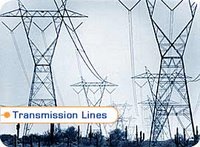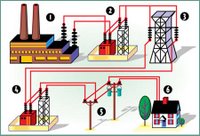
 Baltimore-based Constellation Energy Group has terminated its proposed $10.8 billion sale to FPL Group because uncertainty over regulatory and legal issues in Maryland. The ratepayers of Maryland have been hurt by this cancellation. Size matters in the 21st Century utility sector. The sale would have created one of the largest utility companies in America. Now Constellation will have to fend for itself in compettive utility waters. The Maryland Legislature should be ashamed of itself for creating this debacle. Maryland ratepayers will pay for their folly. Are you listening Mike Miller?
Baltimore-based Constellation Energy Group has terminated its proposed $10.8 billion sale to FPL Group because uncertainty over regulatory and legal issues in Maryland. The ratepayers of Maryland have been hurt by this cancellation. Size matters in the 21st Century utility sector. The sale would have created one of the largest utility companies in America. Now Constellation will have to fend for itself in compettive utility waters. The Maryland Legislature should be ashamed of itself for creating this debacle. Maryland ratepayers will pay for their folly. Are you listening Mike Miller?FPL Group derives most of its revenue from its utility subsidiary, Florida Power and Light. Constellation operates Baltimore Gas and Electric. The deal was delayed by legislation passed during a special summer session of the Maryland General Assembly focusing on increased electric rates. The Maryland Court of Appeals ruled that the legislature wrongly fired the five members of the Public Service Commission. It let stand a measure barring the sitting commission from approving the merger. (Wash Post)






